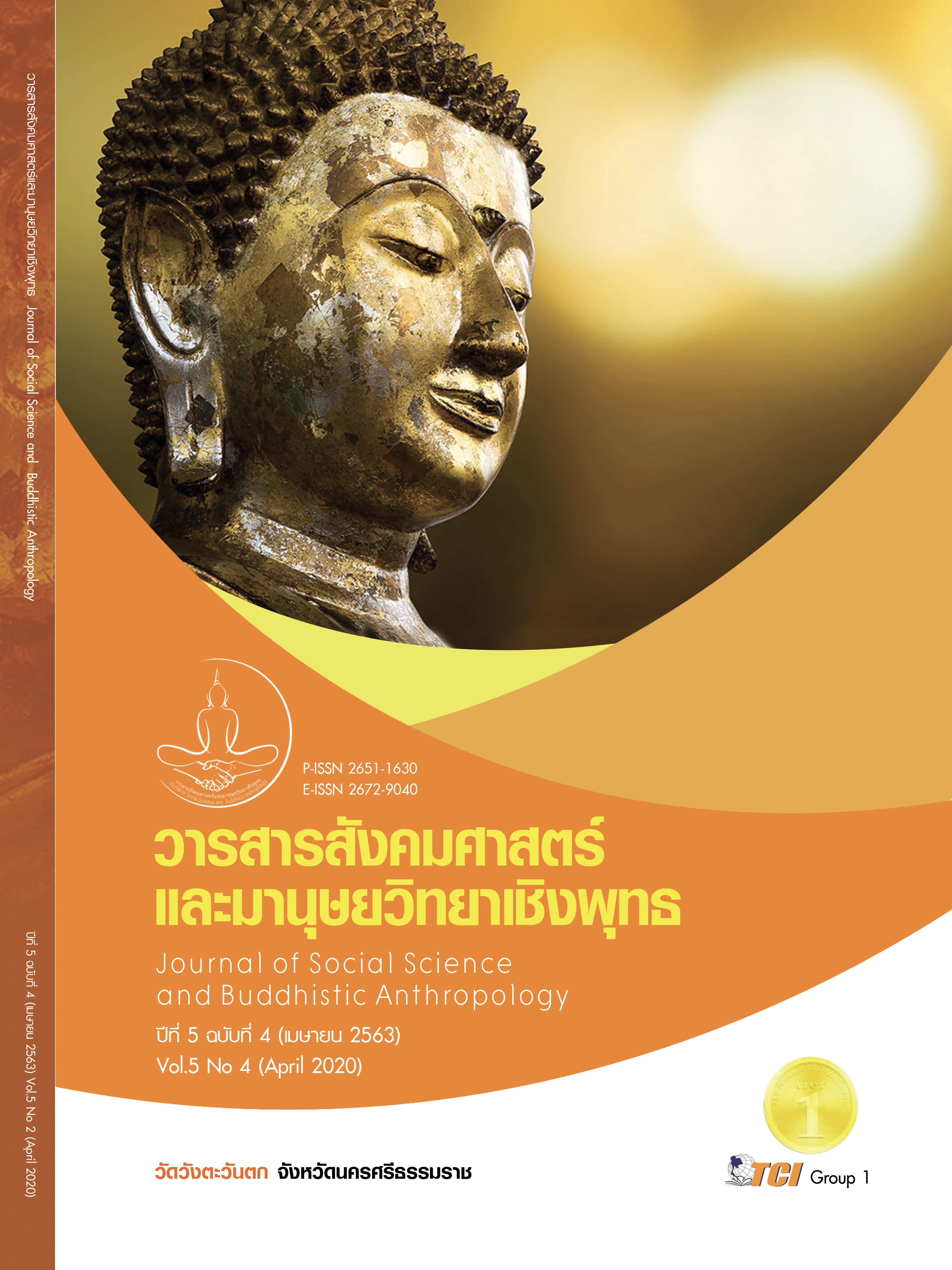THE STRATEGY FOR DEVELOPING ACADEMIC GROUPS IN LEARNING ORGANIZATIONS - THE STUDY OF VOCATIONAL COLLEGES IN THE NORTH EASTERN REGION
Keywords:
Strategy, Learning organization, Academic workAbstract
The objectives of this paper were 1) to study the components of developing academic groups in learning organizations - the study of vocational colleges in the north eastern region, 2) to investigate the current and desirable condition and to develop strategy for the development of academic groups in learning organization - the study of vocational colleges in the north eastern. Mixed – methods research was undertaken for this study. The samples were vocational colleges directors, teachers under north eastern Service Areas with the total number of 477 persons selected by simple random sampling process. The instrument used was questionnaire with reliability of 0.91. Statistics used percentage, mean, standard deviation (S.D.) and PNI modified. The findings of the study reveal that: 1) The overall current condition of the development of academic groups in vocational colleges is at medium level and the overall desire condition is at the highest level. 2) The strategies for developing academic groups in learning organizations, particularly on private vocational colleges, in north eastern region of Thailand comprise of 5 strategies; 1) The first strategy states on the development of mental model of academic group indicated 4 measurements and 5 indicators. 2) The second strategy highlights on the development of shared vision of academic group with 3 measurements and 4 indicators. 3) The third strategy concentrates on the development of team learning which consists of 4 measurements and 7 indicators. 4) The fourth strategy focuses on the knowledge development of academic group which highlights on 4 measurements and 16 indicators. Lastly 5) The fifth strategy underlines the development of systematic thinking of academic group which includes 3 measurements and 5 indicators.
References
กฤษณะ ดาราเรือง. (2558). ตัวแบบองค์การแห่งการเรียนรู้และการจัดการความรู้ สู่การเป็นองค์การแห่งการเรียนรู้. วารสารวิชาการสมาคมสถาบันอุดมศึกษาเอกชนแห่งประเทศไทย, 21(2), 138-151.
ธัญญภัสร์ ศิรธัชนราโรจน์. (2559). จิตวิทยากับการพัฒนาตน. กรุงเทพมหานคร: โรงพิมพ์แห่งจุฬาลงกรณ์มหาวิทยาลัย.
ปรียาพร วงศ์อนุตรโรจน์. (2553). การบริหารงานวิชาการ. กรุงเทพมหานคร: ศูนย์สื่อเสริมกรุงเทพมหานคร.
พระวิเชียร สีหาบุตร. (2557). การพัฒนารูปแบบการบริหารงานวิชาการของมหาวิทยาลัยมหามกุฏราชวิทยาลัยในสังคมอนาคต. ใน วิทยานิพนธ์ศึกษาศาสตรมหาบัณฑิต สาขาวิชาพัฒนาศึกษา. มหาวิทยาลัยศิลปากร.
วิเชียร รู้ยืนยง. (2559). บทบาทของผู้บริหารในการจัดองค์กรแห่งการเรียนรู้ของสถาบันการอาชีวศึกษาในภาคตะวันออกเฉียงเหนือ. วารสารศึกษาศาสตร์, 39(1), 71-78.
วีรวุธ มาฆะศิรานนท์. (2554). การพัฒนาวิสัยทัศน์ผู้นำ. กรุงเทพมหานคร: ธีระป้อมวรรณกรรม.
สมาน อัศวภูมิ. (2551). การบริหารการศึกษาสมัยใหม่ : แนวคิดทฤษฎีและการปฏิบัติ (พิมพ์ครั้งที่ 4) . อุบลราชธานี: อุบลกิจออฟเซทการพิมพ์.
Gephart, M.A. & Marsick V. J. (1996). Learning Organizations Come Alive. Training & Development, ERIC, 50(12), 35 - 45.
Likert. (1970). New Partterns of Management. New York: McGraw-Hill.
Marquardt, M. J. and Reynolds, A. (1994). The Global Learning Organization. New York: IRWIN. Mohammad, Nazir.
Pedler, M., Borgone, J., & Boydell, T. (1997). The Learning Company. London: McGraw - Hill.









